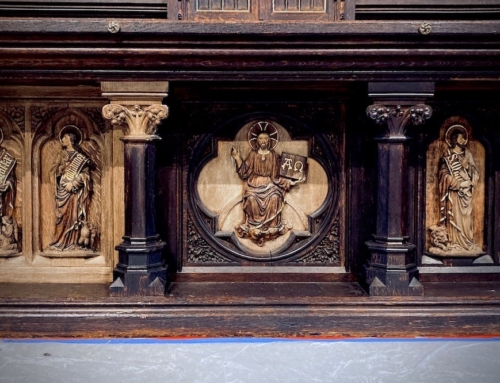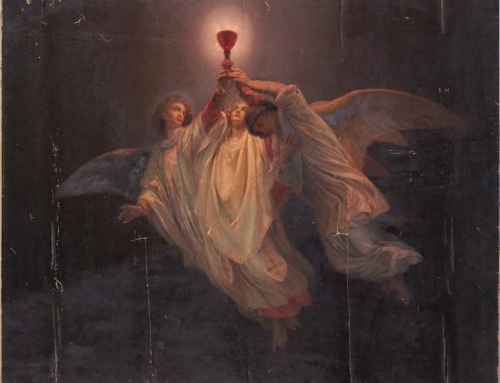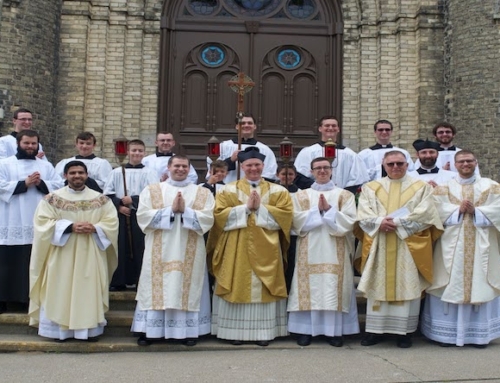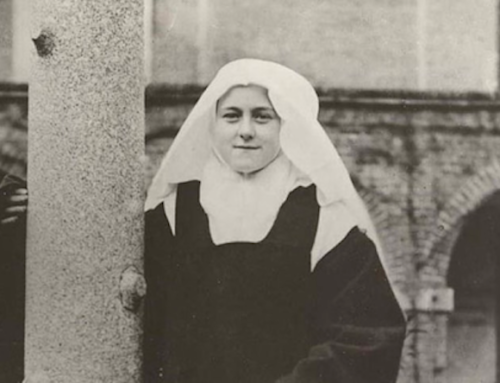“Course he isn’t safe. But he’s good. He’s the King, I tell you” (Mr. Beaver, The Lion Witch and the Wardrobe).
A personal relationship with Jesus Christ is not a hunky-dory friendship with a buddy. Jesus is the God-man, and as such He possesses power and governance over our lives in a way a mere human could never possess. The love of Christ’s friendship is ferocious and mysterious.
In The Chronicles of Narnia, C.S. Lewis portrays Christ as a wild yet good lion named Aslan. The description captures a peculiarity of the God-man. Christ is our friend, but He is also our King. We must draw close to Him, but at the same time approach Him with fear. Our movement toward Christ resembles both the Beloved Disciple lying on His breast and Daniel lying among the lions. That is why Jeremiah prophesied, “When I summon him, he shall approach me; how else should one take the deadly risk of approaching me? says the Lord” (Jer 30:21). Drawing close to God means we draw close to a purifying furnace. To see Him is to die and live again.
Catholics, having heard the Good News, desire salvation and eternal life with God. We receive this salvation in an unexpected manner. The Cross that Christ gives to His friends has a violence to it. We do not deliberate with Christ about our Cross. Salvation is not democratic; we don’t vote. We don’t walk through life choosing which Cross we want to take. Salvation is not capitalistic; we don’t select and buy. The King gives us our Cross as a necessary intervention. Salvation is theocratic and intruding.
Christ the Lion of Judah fulfills two prophecies in the Old Testament concerning our salvation. First, there is the comforting oracle from Ezekiel: “I will give you a new heart, and a new spirit I will put within you. I will remove the heart of stone from your flesh and give you a heart of flesh” (Ez 36:26). Second, there is the terrifying prophecy of Hosea: “So, I will be like a lion to them, like a leopard by the road I will keep watch. I will attack them like a bear robbed of its young, and tear their hearts from their breasts; I will devour them on the spot like a lion, as a wild animal would rip them open” (Hos 13:7-8).
The comforting image of the new heart in Ezekiel promises us resurrection and union with God. Before this happy ending, however, there is an extraction of our old, stony heart. This removal is our purgation, a painful process. The prophecy of Hosea illustrates how ferociously Christ removes our evil hearts; we suffer His power. By opening ourselves up to the changing power of Christ, we become exposed to the suffering that leads to our true good. Jesus is good and unsafe.
St. Augustine, a scholar of the heart, understood Christ’s power in connection with His gentleness. Reflecting upon Christ as lamb and lion, Augustine asked:
“Who is this lamb and lion? He suffered death like a lamb, and he has devoured like a lion… Meek yet courageous; lovable yet fearsome; innocent yet powerful; silent under judgment, yet roaring to pronounce judgement… He slew death when He himself was slain.”
We may call Christ the good, untamed lion or the lion and lamb. The insights of C.S. Lewis and St. Augustine reveal that Christ, by His glorious power and wisdom, provides what we truly need without our consultation. This is a comforting thought in the midst of life’s difficulties. The good lion may be tearing out our old heart, but it is to make room for His.
✠
Photo by Fr. Lawrence Lew, O.P. (used with permission)







